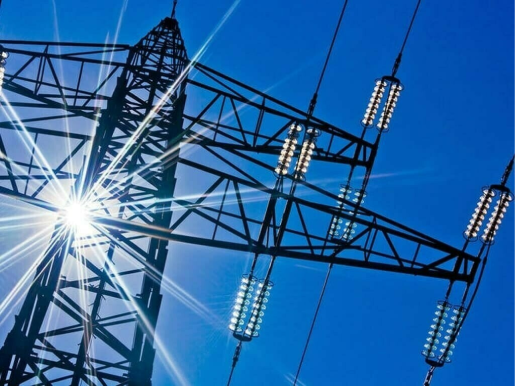ISLAMABAD: Federal Minister for Power Division Omar Ayub has said the federal government has decided to handover Quetta Electric Supply Company (QESCO) to the provincial government of Balochistan.
He said as a part of the privatisation drive, the government had offered Balochistan to takeover the operation of the QESCO, adding that the government was also going to privatise Peshawar Electric Supply Company (PESCO) and the Islamabad Electric Supply Company (IESCO).
While briefing the National Assembly Standing Committee on Power, he told that the power distribution system had almost collapsed, and to improve the power distribution system, the government was going to divide it into two parts, well-performing companies and worse-performing companies.
He said the ministry was to further divide the PESCO and the QESCO.
He said the PESCO had to clear three years old Rs100 billion outstanding dues.
Chairman Committee Chaudhry Salik Hussain asked the minister what was the way forward to deal with the circular debt, which was increasing with each passing day.
The minister, responding to the question, said that the only way forward was the privatisation of the DESCOs by bringing modern changes, and ending lengthy process of paper work, in allocation of metering, billing, and other issues.
Member Committee Shazia Marri and the minister exchanged harsh words during the meeting.
Shazia Marri complained that during the recent monsoon rains, power distribution system totally collapsed in her district, and there was nobody to fix it for weeks.
She added that the corrupt elements of the power distribution company did not install transformers without getting Rs100,000 in bribe, and the people of her district, Shanghar, including herself were forced to collect donations to pay for the installation of transformers.
So far, the privatisation process has not proven beneficial for the masses, and the K-Electric is a clear example.
Even the K-Electric officials are not attending parliamentary meetings.
Transfer mafia is operating in rural areas of the country, who are getting Rs 100,000 for installation of a power transfer, Shazia Marri said.
Member Committee Lal Chand said that there was no mechanism in place to check power theft. Many government officers were beaten up by power thieves, and the police did not register cases against the culprits.
He added that power theft was another serious matter, the local police and other relevant authorities were not cooperating with the officials of the power companies in lodging of FIRs on power theft.
She said that a number of officials of the DESCO were even thrashed by the power thieves but the police did not register their FIRs.
Responding to Shazia Marri, the minister for power put all the blames on the Sindh government, saying that the provincial government of Sindh was responsible for all the ‘mess’ the province was facing at present.
Omar Ayub said 50 percent circular debt was because of the former government’s subsidies.
The minister, while further briefing the panel, said “We offered chief minister of Balochistan to takeover QESCO. We are upgrading distribution and transmission lines. But to do so, the provincial governments’ cooperation is a must”.
He said that the power sector was the biggest sector, which consisted of various DESCOS.
He requested the panel to hold separate meeting on separate issues related to the power ministry, saying all the issues could not be addressed in a single meeting. “Circular debt management plan will be addressed in a separate meeting. We will clear all the issues related to the Ministry of Power in five sessions,” the minister said.
The ministry has planned to abolish lengthy process of installing meters especially paper work, for which we have already conducted a meeting of all the stakeholders. We are streamlining rules and regulations to pass on the benefits of incentives to all the consumers.
Power Division Secretary Ali Raza Bhutta requested the panel to discuss and consider the regulation, generation and distribution of Electric Power (Amendment) Act 2020 moved by Omar Ayub.
The bill deals with tariff and market-related matters, wherein, the ministry has proposed some amendments in the act to deal with circular debt-related matters.
The panel deferred the discussion of the bill to the next meeting, and also constituted a subcommittee to take on the matters related to the K-Electric, and other Sindh-related DESCOs.
Bhutta said that the government had increased power tariff of K-Electric consumers by Rs1.09 per unit to Rs2 per unit.
He added that, at present, circular debt had crossed Rs2 trillion mark, which was growing with each passing day.
He said that the International Monetary Fund (IMF) was already against circular debt, which was going up unchecked.
The chairman committee and the members expressed serious reservations on the amendment proposed for the regulation of generation, transmission, and distribution of Electric Power Bill 2020, regarding the vague procedure of surcharge to be imposed, and the utilisation of funds generated through the surcharges.
The members opposed the idea of imposition of new surcharge, saying such additional surcharges should not be levied on the masses already under burden.
If the government was going to impose such a surcharge, it should be rationalised and to be presented before the committee for viable discussions.
The minister said that the uniform tariff would help resolve the problems of distribution companies. The ministry was further directed to implement provincial quota for the minorities and disabled persons, while filling the vacant positions in the DESCOS.





